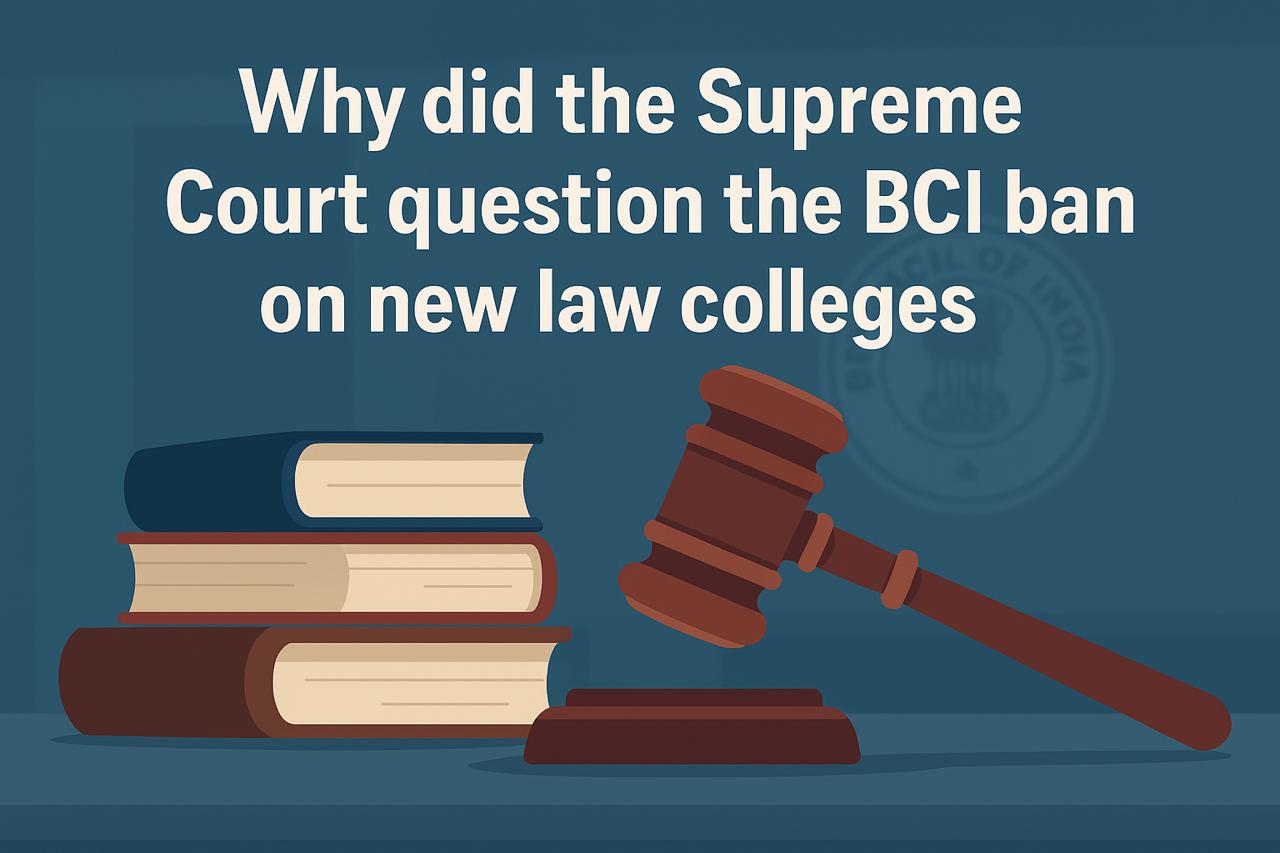Supreme Court Questions BCI Ban on New Law Colleges
The Supreme Court has asked the Bar Council of India (BCI) to explain its decision to impose a three-year freeze on new law colleges. Advocate Jatin Sharma’s petition alleges that this moratorium is unfair and unconstitutional because it restricts access to legal education unnecessarily.
Why Did BCI Impose a Ban on New Law Colleges?
Officials say they’re worried about too many poorly managed law colleges popping up, lack of qualified faculty, and legal education turning into a business venture. The new rule means no college or university can start new law courses, batches, or even sections unless the BCI gives the go-ahead. There are exceptions, but only for institutions working in socially backward or tribal districts, and some state or central universities.
Petition Against BCI Ban on New Law Colleges Cites Constitutional Rights
The BCI’s new rule leaves a few outs mainly for colleges aimed at serving underserved communities, tribal areas, or those run by certain public universities. But the main complaint against this move comes from Jatin Sharma’s petition, which says the ban violates constitutional guarantees of equality and the freedom to choose one’s profession. Sharma’s appeal wasn’t for a total free-for-all: he suggested that instead of banning all new law colleges, the BCI should step up real inspections and tighter checks, punishing only those colleges that don’t meet basic standards. To him, the moratorium unfairly penalizes even those institutions that are genuinely trying to do things right.
Alternative Solutions to the BCI Ban on New Law Colleges
The plea suggested reforms such as restructuring the Legal Education Committee and Curriculum Development Committee to include judges, senior advocates, and academicians. The petition didn’t just challenge the ban it also offered solutions. Sharma talked about bringing judges, legal experts, and senior advocates onto BCI’s education committees to raise standards from the inside. He argued for stricter, more regular audits and suggested giving incentives to open new colleges in regions that need them most, like tribal and backward districts. In his view, these focused steps would help weed out weak colleges, without shutting the door on legal education for everyone.
Ongoing Controversies Highlight Gaps in the BCI Ban on New Law Colleges
The urgency of judicial scrutiny became clearer with the recent controversy at SVKM’s Pravin Gandhi College of Law (PGCL), Mumbai. Alumni recently raised alarm at Pravin Gandhi College of Law in Mumbai, saying its lapsed BCI approval put their degrees and future legal careers at risk. The college says it applied for renewal in time, but students have asked the Bombay High Court for help, showing how messy oversight and delayed approvals can hurt real people on the ground. Critics say problems like these aren’t fixed by blocking new colleges; instead, what’s missing is better accountability for institutions already running.
Conclusion – BCI Ban on New Law Colleges and the Road Ahead
The Supreme Court’s review of the BCI ban on new law colleges is more than a legal dispute it is a test of how regulatory bodies should balance quality with accessibility. The BCI says its freeze is needed to stop the slide in legal education standards, but critics argue that punishing every college good and bad isn’t the way to clean things up. With the Supreme Court now involved, the showdown is about more than red tape: it’s a test of whether rules in education should help bring real reform, or just put up more barriers.
Author Information:
By Karthikeyan Ganesan, a law student from KKC College of Law, reporting on law and technology for Nyayasphere. Karthikeyan always likes to stay updated with current trends and important information regarding the law and cases across the country.

